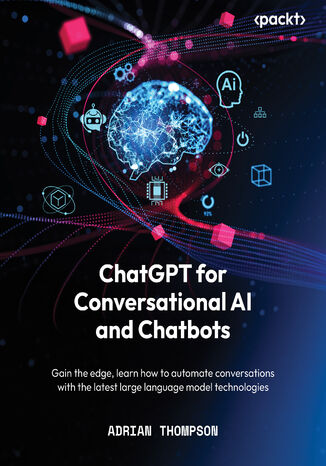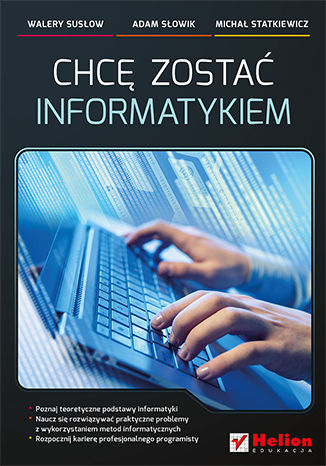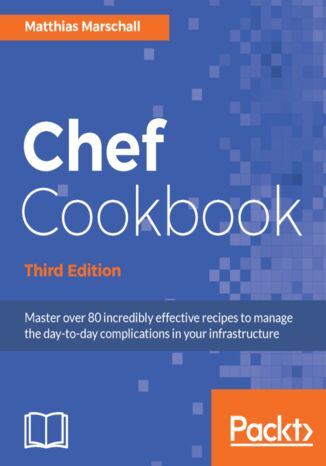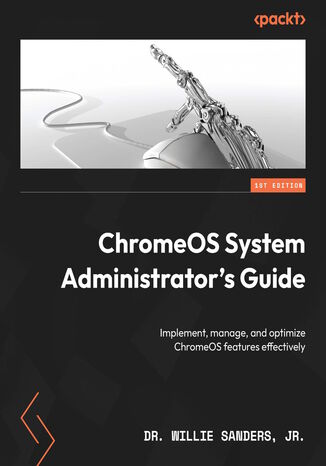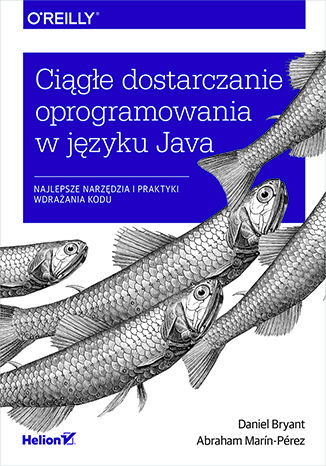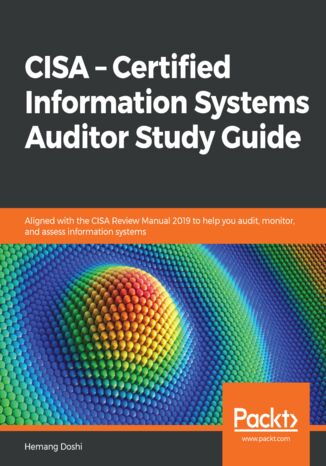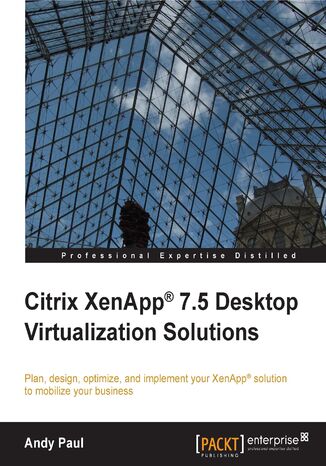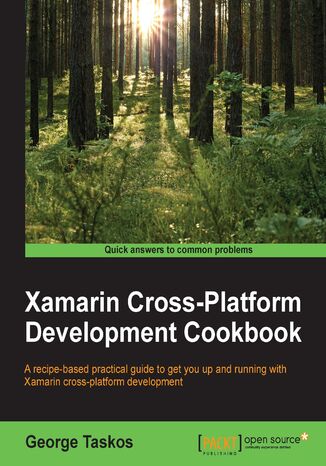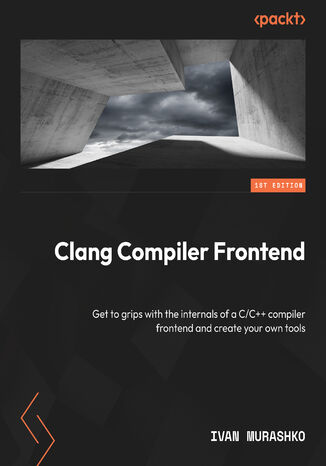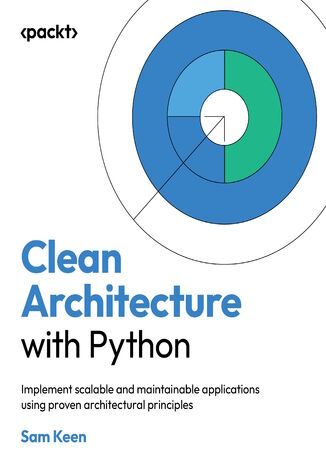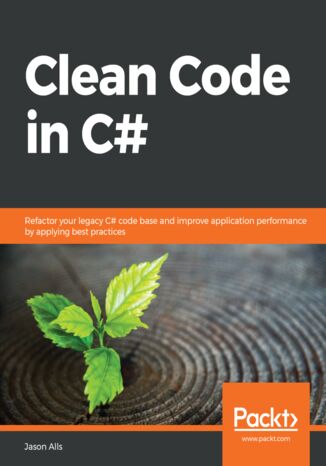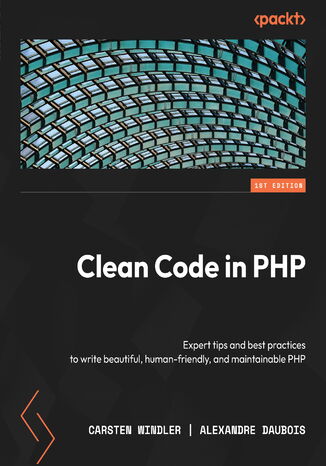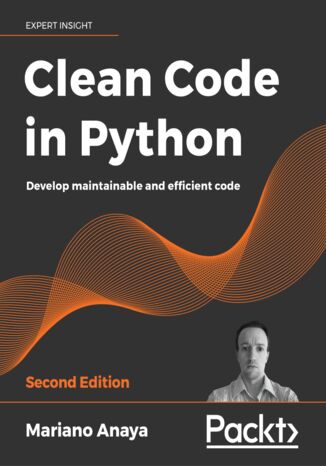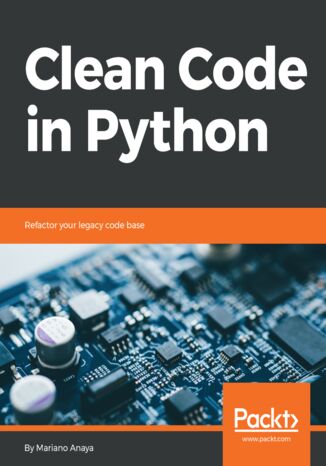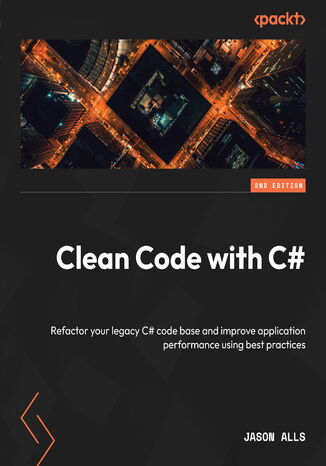Kategorie
Ebooki
-
Biznes i ekonomia
- Bitcoin
- Bizneswoman
- Coaching
- Controlling
- E-biznes
- Ekonomia
- Finanse
- Giełda i inwestycje
- Kompetencje osobiste
- Komputer w biurze
- Komunikacja i negocjacje
- Mała firma
- Marketing
- Motywacja
- Multimedialne szkolenia
- Nieruchomości
- Perswazja i NLP
- Podatki
- Polityka społeczna
- Poradniki
- Prezentacje
- Przywództwo
- Public Relation
- Raporty, analizy
- Sekret
- Social Media
- Sprzedaż
- Start-up
- Twoja kariera
- Zarządzanie
- Zarządzanie projektami
- Zasoby ludzkie (HR)
-
Dla dzieci
-
Dla młodzieży
-
Edukacja
-
Encyklopedie, słowniki
-
E-prasa
- Architektura i wnętrza
- BHP
- Biznes i Ekonomia
- Dom i ogród
- E-Biznes
- Ekonomia i finanse
- Ezoteryka
- Finanse
- Finanse osobiste
- Firma
- Fotografia
- Informatyka
- Kadry i płace
- Kobieca
- Komputery, Excel
- Księgowość
- Kultura i literatura
- Naukowe i akademickie
- Ochrona środowiska
- Opiniotwórcze
- Oświata
- Podatki
- Podróże
- Psychologia
- Religia
- Rolnictwo
- Rynek książki i prasy
- Transport i Spedycja
- Zdrowie i uroda
-
Historia
-
Informatyka
- Aplikacje biurowe
- Bazy danych
- Bioinformatyka
- Biznes IT
- CAD/CAM
- Digital Lifestyle
- DTP
- Elektronika
- Fotografia cyfrowa
- Grafika komputerowa
- Gry
- Hacking
- Hardware
- IT w ekonomii
- Pakiety naukowe
- Podręczniki szkolne
- Podstawy komputera
- Programowanie
- Programowanie mobilne
- Serwery internetowe
- Sieci komputerowe
- Start-up
- Systemy operacyjne
- Sztuczna inteligencja
- Technologia dla dzieci
- Webmasterstwo
-
Inne
-
Języki obce
-
Kultura i sztuka
-
Lektury szkolne
-
Literatura
- Antologie
- Ballada
- Biografie i autobiografie
- Dla dorosłych
- Dramat
- Dzienniki, pamiętniki, listy
- Epos, epopeja
- Esej
- Fantastyka i science-fiction
- Felietony
- Fikcja
- Humor, satyra
- Inne
- Klasyczna
- Kryminał
- Literatura faktu
- Literatura piękna
- Mity i legendy
- Nobliści
- Nowele
- Obyczajowa
- Okultyzm i magia
- Opowiadania
- Pamiętniki
- Podróże
- Poemat
- Poezja
- Polityka
- Popularnonaukowa
- Powieść
- Powieść historyczna
- Proza
- Przygodowa
- Publicystyka
- Reportaż
- Romans i literatura obyczajowa
- Sensacja
- Thriller, Horror
- Wywiady i wspomnienia
-
Nauki przyrodnicze
-
Nauki społeczne
-
Podręczniki szkolne
-
Popularnonaukowe i akademickie
- Archeologia
- Bibliotekoznawstwo
- Filmoznawstwo
- Filologia
- Filologia polska
- Filozofia
- Finanse i bankowość
- Geografia
- Gospodarka
- Handel. Gospodarka światowa
- Historia i archeologia
- Historia sztuki i architektury
- Kulturoznawstwo
- Lingwistyka
- Literaturoznawstwo
- Logistyka
- Matematyka
- Medycyna
- Nauki humanistyczne
- Pedagogika
- Pomoce naukowe
- Popularnonaukowa
- Pozostałe
- Psychologia
- Socjologia
- Teatrologia
- Teologia
- Teorie i nauki ekonomiczne
- Transport i spedycja
- Wychowanie fizyczne
- Zarządzanie i marketing
-
Poradniki
-
Poradniki do gier
-
Poradniki zawodowe i specjalistyczne
-
Prawo
- BHP
- Historia
- Kodeks drogowy. Prawo jazdy
- Nauki prawne
- Ochrona zdrowia
- Ogólne, kompendium wiedzy
- Podręczniki akademickie
- Pozostałe
- Prawo budowlane i lokalowe
- Prawo cywilne
- Prawo finansowe
- Prawo gospodarcze
- Prawo gospodarcze i handlowe
- Prawo karne
- Prawo karne. Przestępstwa karne. Kryminologia
- Prawo międzynarodowe
- Prawo międzynarodowe i zagraniczne
- Prawo ochrony zdrowia
- Prawo oświatowe
- Prawo podatkowe
- Prawo pracy i ubezpieczeń społecznych
- Prawo publiczne, konstytucyjne i administracyjne
- Prawo rodzinne i opiekuńcze
- Prawo rolne
- Prawo socjalne, prawo pracy
- Prawo Unii Europejskiej
- Przemysł
- Rolne i ochrona środowiska
- Słowniki i encyklopedie
- Zamówienia publiczne
- Zarządzanie
-
Przewodniki i podróże
- Afryka
- Albumy
- Ameryka Południowa
- Ameryka Środkowa i Północna
- Australia, Nowa Zelandia, Oceania
- Austria
- Azja
- Bałkany
- Bliski Wschód
- Bułgaria
- Chiny
- Chorwacja
- Czechy
- Dania
- Egipt
- Estonia
- Europa
- Francja
- Góry
- Grecja
- Hiszpania
- Holandia
- Islandia
- Litwa
- Łotwa
- Mapy, Plany miast, Atlasy
- Miniprzewodniki
- Niemcy
- Norwegia
- Podróże aktywne
- Polska
- Portugalia
- Pozostałe
- Przewodniki po hotelach i restauracjach
- Rosja
- Rumunia
- Słowacja
- Słowenia
- Szwajcaria
- Szwecja
- Świat
- Turcja
- Ukraina
- Węgry
- Wielka Brytania
- Włochy
-
Psychologia
- Filozofie życiowe
- Kompetencje psychospołeczne
- Komunikacja międzyludzka
- Mindfulness
- Ogólne
- Perswazja i NLP
- Psychologia akademicka
- Psychologia duszy i umysłu
- Psychologia pracy
- Relacje i związki
- Rodzicielstwo i psychologia dziecka
- Rozwiązywanie problemów
- Rozwój intelektualny
- Sekret
- Seksualność
- Uwodzenie
- Wygląd i wizerunek
- Życiowe filozofie
-
Religia
-
Sport, fitness, diety
-
Technika i mechanika
Audiobooki
-
Biznes i ekonomia
- Bitcoin
- Bizneswoman
- Coaching
- Controlling
- E-biznes
- Ekonomia
- Finanse
- Giełda i inwestycje
- Kompetencje osobiste
- Komunikacja i negocjacje
- Mała firma
- Marketing
- Motywacja
- Nieruchomości
- Perswazja i NLP
- Podatki
- Polityka społeczna
- Poradniki
- Prezentacje
- Przywództwo
- Public Relation
- Sekret
- Social Media
- Sprzedaż
- Start-up
- Twoja kariera
- Zarządzanie
- Zarządzanie projektami
- Zasoby ludzkie (HR)
-
Dla dzieci
-
Dla młodzieży
-
Edukacja
-
Encyklopedie, słowniki
-
E-prasa
-
Historia
-
Informatyka
-
Inne
-
Języki obce
-
Kultura i sztuka
-
Lektury szkolne
-
Literatura
- Antologie
- Ballada
- Biografie i autobiografie
- Dla dorosłych
- Dramat
- Dzienniki, pamiętniki, listy
- Epos, epopeja
- Esej
- Fantastyka i science-fiction
- Felietony
- Fikcja
- Humor, satyra
- Inne
- Klasyczna
- Kryminał
- Literatura faktu
- Literatura piękna
- Mity i legendy
- Nobliści
- Nowele
- Obyczajowa
- Okultyzm i magia
- Opowiadania
- Pamiętniki
- Podróże
- Poezja
- Polityka
- Popularnonaukowa
- Powieść
- Powieść historyczna
- Proza
- Przygodowa
- Publicystyka
- Reportaż
- Romans i literatura obyczajowa
- Sensacja
- Thriller, Horror
- Wywiady i wspomnienia
-
Nauki przyrodnicze
-
Nauki społeczne
-
Popularnonaukowe i akademickie
-
Poradniki
-
Poradniki zawodowe i specjalistyczne
-
Prawo
-
Przewodniki i podróże
-
Psychologia
- Filozofie życiowe
- Komunikacja międzyludzka
- Mindfulness
- Ogólne
- Perswazja i NLP
- Psychologia akademicka
- Psychologia duszy i umysłu
- Psychologia pracy
- Relacje i związki
- Rodzicielstwo i psychologia dziecka
- Rozwiązywanie problemów
- Rozwój intelektualny
- Sekret
- Seksualność
- Uwodzenie
- Wygląd i wizerunek
- Życiowe filozofie
-
Religia
-
Sport, fitness, diety
-
Technika i mechanika
Kursy video
-
Bazy danych
-
Big Data
-
Biznes, ekonomia i marketing
-
Cyberbezpieczeństwo
-
Data Science
-
DevOps
-
Dla dzieci
-
Elektronika
-
Grafika/Wideo/CAX
-
Gry
-
Microsoft Office
-
Narzędzia programistyczne
-
Programowanie
-
Rozwój osobisty
-
Sieci komputerowe
-
Systemy operacyjne
-
Testowanie oprogramowania
-
Urządzenia mobilne
-
UX/UI
-
Web development
-
Zarządzanie
Podcasty
- Ebooki
- Informatyka
- Programowanie
Programowanie
Nasza biblioteka online zawiera szereg publikacji, dzięki którym programowanie nie będzie mieć przed Tobą żadnych tajemnic. Zawarte tu książki przybliżą Ci takie języki jak HTML, JavaScript, Python czy CSS. Dowiesz się dzięki nim także tego, jak tworzyć efektywne algorytmy, projektować aplikacje mobilne, czy dbać o poprawną architekturę informacji w serwisach internetowych.
ChatGPT for Conversational AI and Chatbots is a definitive resource for exploring conversational AI, ChatGPT, and large language models.This book introduces the fundamentals of ChatGPT and conversational AI automation. You’ll explore the application of ChatGPT in conversation design, the use of ChatGPT as a tool to create conversational experiences, and a range of other practical applications. As you progress, you’ll delve into LangChain, a dynamic framework for LLMs, covering topics such as prompt engineering, chatbot memory, using vector stores, and validating responses. Additionally, you’ll learn about creating and using LLM-enabling tools, monitoring and fine tuning, LangChain UI tools such as LangFlow, and the LangChain ecosystem. You’ll also cover popular use cases, such as using ChatGPT in conjunction with your own data. Later, the book focuses on creating a ChatGPT-powered chatbot that can comprehend and respond to queries directly from your unique data sources. The book then guides you through building chatbot UIs with ChatGPT API and some of the tools and best practices available.By the end of this book, you’ll be able to confidently leverage ChatGPT technologies to build conversational AI solutions.
Michał Statkiewicz, Adam Słowik, Walery Susłow
Poznaj teoretyczne podstawy informatyki Naucz się rozwiązywać praktyczne problemy z wykorzystaniem metod informatycznych Rozpocznij karierę profesjonalnego programisty Informatyka to niezwykle dynamicznie rozwijająca się dziedzina wiedzy. Komputery otaczają nas ze wszystkich stron: sterują pracą sprzętów gospodarstwa domowego, pośredniczą w komunikacji, a nawet umożliwiają eksplorację przestrzeni kosmicznej. Dzisiejszy świat trudno już właściwie wyobrazić sobie bez maszyn cyfrowych i kontrolującego je oprogramowania. Wciąż rośnie zapotrzebowanie rynku na wysokiej klasy specjalistów, którzy dzięki swojej wiedzy i dużemu doświadczeniu potrafią projektować, budować oraz programować systemy komputerowe. Popularność zawodu informatyka potęgują też wysokie zarobki, które zwiększają zainteresowanie młodzieży tą niełatwą dziedziną wiedzy. Jeśli interesujesz się informatyką, chcesz lepiej poznać jej podstawowe zagadnienia, nauczyć się rozwiązywać jej klasyczne problemy i analizować zadania informatyczne w sposób właściwy prawdziwym programistom, sięgnij po książkę Chcę zostać informatykiem. W przystępny sposób prezentuje ona matematyczne mechanizmy wykorzystywane w informatyce, uczy podstaw algorytmiki i wprowadza w świat programowania komputerów. Przedstawia zagadnienia związane z sieciami komputerowymi i bezpieczeństwem informacji oraz sposoby tworzenia gier komputerowych. Przede wszystkim zawiera jednak mnóstwo praktycznych przykładów i ciekawych zadań, które pomogą zainteresowanym kandydatom sprawdzić poziom swojej wiedzy i dostać się na studia informatyczne. Jeśli marzysz o karierze informatyka lub po prostu interesujesz się programowaniem i chcesz poszerzyć swoją wiedzę na ten temat, trafiłeś na właściwą książkę! Podstawy teoretyczne informatyki na skróty Ciekawe zadania informatyczne wraz z rozwiązaniami Matematyka, logika i algorytmika w informatyce Analiza podstawowych problemów programistycznych Wymiarowanie informacji i bezpieczeństwo danych Programowanie komputerów i sieci komputerowe Gry komputerowe Nie wahaj się! Zrób pierwszy krok, aby poznać sekrety informatyki!
Chef Cookbook. Achieve powerful IT infrastructure management and automation - Third Edition
Chef is a configuration management tool that lets you automate your more cumbersome IT infrastructure processes and control a large network of computers (and virtual machines) from one master server. This book will help you solve everyday problems with your IT infrastructure with Chef. It will start with recipes that show you how to effectively manage your infrastructure and solve problems with users, applications, and automation. You will then come across a new testing framework, InSpec, to test any node in your infrastructure.Further on, you will learn to customize plugins and write cross-platform cookbooks depending on the platform. You will also install packages from a third-party repository and learn how to manage users and applications. Toward the end, you will build high-availability services and explore what Habitat is and how you can implement it.
ChromeOS System Administrator's Guide. Implement, manage, and optimize ChromeOS features effectively
Google's ChromeOS provides a great platform for technicians, system administrators, developers, and casual users alike, providing a seemingly simplistic architecture that is easy enough for a novice user to begin working with. However, beneath the surface, this operating system boasts a plethora of powerful tools, able to rival any other OS on the market. So, learning how to harness the full potential of the OS is critical for you as a technical worker and user to thrive at your workplace. ChromeOS System Administrator’s Guide will help you reap the benefits of all features of ChromeOS.This book explains ChromeOS’ unique architecture and its built-in tools that perform essential tasks such as managing user accounts, working with data, and launching applications. As you build your foundational knowledge of the OS, you'll be exposed to higher-level concepts such as security, command line, and enterprise management.By the end of this book, you’ll be well-equipped to perform a range of system administration tasks within ChromeOS without requiring an alternative operating system, thereby broadening your options as a technician, system administrator, developer, or engineer.
Ciągłe dostarczanie oprogramowania w języku Java. Najlepsze narzędzia i praktyki wdrażania kodu
Daniel Bryant, Abraham Marín-Pérez
W ciągu ostatnich lat radykalnie zmieniły się wymagania i oczekiwania biznesowe wobec oprogramowania. Kluczowymi wartościami są innowacyjność, szybkość i czas wejścia na rynek. Do spełnienia tych wymagań konieczne okazały się nowe architektury i modele tworzenia kodu. Metodyka ciągłego dostarczania, zwanego też CD, polega na tworzeniu w krótkich cyklach wartościowych i solidnych produktów. Funkcjonalności są dodawane w małych krokach, a oprogramowanie można wydawać niezawodnie w dowolnej chwili. To sprawia, że można też szybko otrzymywać informacje zwrotne. Jednak taki sposób pracy wymaga odpowiednich ram organizacyjnych, a zespół projektowy musi przyswoić nieco inny od tradycyjnego styl pracy. Ta książka jest praktycznym przewodnikiem, dzięki któremu programiści Javy opanują techniki potrzebne do pomyślnego zastosowania metody ciągłego dostarczania. Opisano tu najlepsze zasady budowy architektury oprogramowania, automatycznej kontroli jakości, pakowania aplikacji i wdrażania ich w różnych środowiskach produkcyjnych. Szczególną uwagę poświęcono testowaniu oprogramowania: przedstawiono całą gamę metodyk testowania, opisano ich zastosowanie i znaczenie w cyklu życia aplikacji. Ciekawym elementem książki są informacje o złych praktykach i antywzorcach wraz ze wskazówkami dotyczącymi rozwiązywania tego rodzaju problemów. W tej książce między innymi: solidne podstawy ciągłego dostarczania oprogramowania migracja do ciągłego dostarczania oprogramowania narzędzia: Jenkins, PMD i FindSecBugs zasady testowania funkcjonalności i jakości oprogramowania techniki obserwacji aplikacji w środowisku produkcyjnym Java i CD: tak zdobędziesz prawdziwą przewagę!
CI/CD Design Patterns. Design and implement CI/CD using proven design patterns
Garima Bajpai, Michel Schildmeijer, Muktesh Mishra, Pawel Piwosz, ...
The fast-changing world of software development demands robust CI/CD solutions that go beyond traditional methods to address the complexities of modern pipelines. This practical guide presents proven design patterns to streamline your CI/CD processes, tackling pain points often overlooked by other resources. This book introduces continuous delivery design patterns to help practitioners and engineering teams design, adopt, and implement CI/CD. Drawing from decades of combined industry experience, the expert author team—including DevOps and cloud leader Garima Bajpai, industry expert Michel Schildmeijer, CI/CD framework creator Pawel Piwosz, and open source advocate Muktesh Mishra—provides invaluable insights from leading voices in the industry.The book lays a solid foundation by starting with the importance of CI/CD design patterns, components, and principles. You’ll learn strategies for scaling CI/CD with a focus on performance, security, measurements, and pipeline auditability, along with infrastructure and release automation. The book also covers advanced design patterns that integrate machine learning, generative AI, and near real-time CI/CD processes.By the end of this book, you’ll have a deep understanding of continuous delivery design patterns, a solid foundation for audits and controls, and be able to mitigate risks associated with the rapid integration of modern technology into the SDLC.
Are you looking to prepare for the CISA exam and understand the roles and responsibilities of an information systems (IS) auditor?The CISA - Certified Information Systems Auditor Study Guide is here to help you get started with CISA exam prep.This book covers all the five CISA domains in detail to help you pass the exam. You’ll start by getting up and running with the practical aspects of an information systems audit. The book then shows you how to govern and manage IT, before getting you up to speed with acquiring information systems. As you progress, you’ll gain knowledge of information systems operations and understand how to maintain business resilience, which will help you tackle various real-world business problems. Finally, you’ll be able to assist your organization in effectively protecting and controlling information systems with IT audit standards.By the end of this CISA book, you'll not only have covered the essential concepts and techniques you need to know to pass the CISA certification exam but also have the ability to apply them in the real world.
Discover the power of Clang, a versatile compiler known for its compilation speed and insightful error and warning messages. This book will get you acquainted with the capabilities of Clang, helping you harness its features for performance improvements and modularity by creating custom compiler tools.While focused on Clang compiler frontend, this book also covers other parts of LLVM, essential to understanding Clang's functionality, to keep up with the constantly evolving LLVM project.Starting with LLVM fundamentals, from installation procedures to development tools, this book walks you through Clang's internal architecture and its integral role within LLVM. As you progress, you’ll also tackle optimizing compilation performance through features such as C++ modules and header maps.The later chapters cover tools developed using the Clang/LLVM, including clang-tidy for linting, refactoring tools, and IDE support, and feature many examples to illustrate the material.By the end of this book, you’ll have a solid understanding of Clang, different Clang Tools, and how to use them to their fullest potential.
In the rapidly evolving tech industry, software applications struggle to keep pace with changing business needs, leaving developers grappling with complex codebases that resist change, ultimately reducing productivity and increasing technical debt. Clean Architecture with Python offers a powerful approach to address these challenges. Drawing from his extensive experience architecting cloud-native systems, Sam Keen helps you transform complex architectural challenges into digestible, implementable solutions.This book teaches essential principles for effective development, emphasizing the Pythonic implementation of Clean Architecture. Through practical examples, you'll learn how to create modular, loosely coupled systems that are easy to understand, modify, and extend. The book covers key concepts such as the Dependency Rule, separation of concerns, and domain modeling, all tailored for Python development.By the end of this book, you'll be able to apply Clean Architecture principles effectively in your Python projects. Whether you're building new systems or managing existing ones, you'll have the skills to create more maintainable and adaptable applications. This approach will enhance your ability to respond to changing requirements, setting you up for long-term success in your development career.
Traditionally associated with developing Windows desktop applications and games, C# is now used in a wide variety of domains, such as web and cloud apps, and has become increasingly popular for mobile development. Despite its extensive coding features, professionals experience problems related to efficiency, scalability, and maintainability because of bad code. Clean Code in C# will help you identify these problems and solve them using coding best practices.The book starts with a comparison of good and bad code, helping you understand the importance of coding standards, principles, and methodologies. You’ll then get to grips with code reviews and their role in improving your code while ensuring that you adhere to industry-recognized coding standards. This C# book covers unit testing, delves into test-driven development, and addresses cross-cutting concerns. You’ll explore good programming practices for objects, data structures, exception handling, and other aspects of writing C# computer programs. Once you’ve studied API design and discovered tools for improving code quality, you’ll look at examples of bad code and understand which coding practices you should avoid.By the end of this clean code book, you’ll have the developed skills you need in order to apply industry-approved coding practices to write clean, readable, extendable, and maintainable C# code.
Carsten Windler, Alexandre Daubois
PHP is a beginner-friendly language, but also one that is rife with complaints of bad code,;yet no clean code books are specific to PHP. Enter Clean Code in PHP. This book is a one-stop guide to learning the theory and best practices of clean code specific to real-world PHP app development environments.This PHP book is cleanly split to help you navigate through coding practices and theories to understand and adopt the nuances of the clean code paradigm. In addition to covering best practices, tooling for code quality, and PHP design patterns, this book also presents tips and techniques for working on large-scale PHP apps with a team and writing effective documentation for your PHP projects.By the end of this book, you’ll be able to write human-friendly PHP code, which will fuel your PHP career growth and set you apart from the competition.
Clean Code in Python. Develop maintainable and efficient code - Second Edition
Experienced professionals in every field face several instances of disorganization, poor readability, and testability due to unstructured code.With updated code and revised content aligned to the new features of Python 3.9, this second edition of Clean Code in Python will provide you with all the tools you need to overcome these obstacles and manage your projects successfully.The book begins by describing the basic elements of writing clean code and how it plays a key role in Python programming. You will learn about writing efficient and readable code using the Python standard library and best practices for software design.The book discusses object-oriented programming in Python and shows you how to use objects with descriptors and generators. It will also show you the design principles of software testing and how to resolve problems by implementing software design patterns in your code. In the concluding chapter, we break down a monolithic application into a microservices-based one starting from the code as the basis for a solid platform.By the end of this clean code book, you will be proficient in applying industry-approved coding practices to design clean, sustainable, and readable real-world Python code.
Clean Code in Python. Refactor your legacy code base
Python is currently used in many different areas such as software construction, systems administration, and data processing. In all of these areas, experienced professionals can find examples of inefficiency, problems, and other perils, as a result of bad code. After reading this book, readers will understand these problems, and more importantly, how to correct them. The book begins by describing the basic elements of writing clean code and how it plays an important role in Python programming. You will learn about writing efficient and readable code using the Python standard library and best practices for software design. You will learn to implement the SOLID principles in Python and use decorators to improve your code. The book delves more deeply into object oriented programming in Python and shows you how to use objects with descriptors and generators. It will also show you the design principles of software testing and how to resolve software problems by implementing design patterns in your code. In the final chapter we break down a monolithic application to a microservice one, starting from the code as the basis for a solid platform. By the end of the book, you will be proficient in applying industry approved coding practices to design clean, sustainable and readable Python code.
Traditionally associated with Windows desktop applications and game development, C# has expanded into web, cloud, and mobile development. However, despite its extensive coding features, professionals often encounter issues with efficiency, scalability, and maintainability due to poor code. Clean Code in C# guides you in identifying and resolving these problems using coding best practices.This book starts by comparing good and bad code to emphasize the importance of coding standards, principles, and methodologies. It then covers code reviews, unit testing, and test-driven development, and addresses cross-cutting concerns. As you advance through the chapters, you’ll discover programming best practices for objects, data structures, exception handling, and other aspects of writing C# computer programs. You’ll also explore API design and code quality enhancement tools, while studying examples of poor coding practices to understand what to avoid.By the end of this clean code book, you’ll have the developed the skills needed to apply industry-approved coding practices to write clean, readable, extendable, and maintainable C# code.

